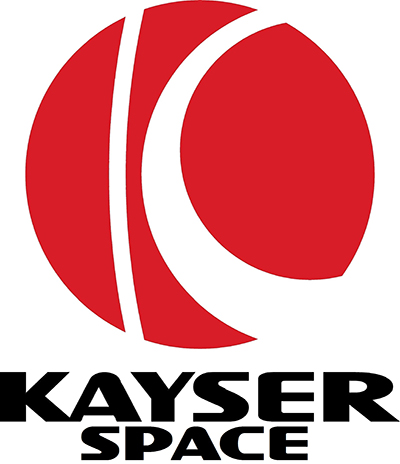

Kayser space cellular agriculture in space feasibility study
Opportunity
Kayser Space Ltd is an SME primarily engaged in the design and manufacture of hardware supporting scientific and technological research in space, its full certification to the space standards and the support to mission planning and operations. Their mission is to incubate ideas, propose opportunities, assess the feasibility of scientific investigations and deliver space-worthy technological solutions to implement them.
For space missions, especially long terms ones, size, weight and other constraints are such that meeting the protein needs of astronauts is a big challenge. Future long duration space missions (years rather than days, to places such as Mars) will need solutions for producing food in-situ. Conventional fresh meat production in space is not viable, hence cellular agriculture represents a promising alternative.
The purpose of Kayser Space Ltd’s project was therefore to establish the feasibility of a cellular agriculture system (in this case cultivated meat), taking into account the space environment, current bioreactor technologies and nutritional considerations.
Specifically, the project aims were as follows:
- Assess the capability of cellular agriculture for cultivated meat production
- Frame this capability in the context of sustainability, food security and human health safety
- Assess resources needed, energy balance and potential for a closed loop system
- Identify and evaluate bioreactor technology best suited for utilisation in space
Approach
The project was funded by The European Space Agency and led by Kayser Space Ltd. Cellular Agriculture Ltd – the first UK startup in the cultured protein field – were partners whose role was to design the bioreactor for the cell culturing.
Our role was to advise on the nutritional, food safety and HACCP (Hazard Analysis and Critical Control Points) system elements. Our first task was to evaluate various protein sources – of which cultivated meat was one – to assess their suitability for the challenge at hand. We assessed a number of options, and cultivated meat was found to be the best suited to the task due to palatability (important for astronaut morale) and amino acid profile (with respect to the 11 essential amino acids that we need our diets to provide).
Results
The project team were able to assess the viability of a space-based bioreactor for producing cultivated meat capable of providing the nutritional protein requirements of a crew on a long duration space mission.
It is considered highly feasible that the project’s bioreactor could be adapted (with limited modification) as a cellular agriculture system for use in space.
The work has brought the idea of a ‘closed loop’ life support for deep space missions closer to reality.
The expertise on nutrition and knowledge of the food industry that Campden BRI brought to the UK consortium working on the Cellular Agriculture for Future Space Missions case study, set us aside from the competition and significantly enhanced the quality and depth of the analysis provided to the European Space Agency. Campden BRI’s commitment to the project and continued support, is essential in our ability to pursue ‘next step’ activities as an established consortium
Ramón Nartallo, Programme Manager at Kayser Space Ltd
The technology is being taken forward to the next phase of study. There have been a number of areas identified for further research, including how to generate raw materials onboard and how to recycle waste.
All partners want the collaboration to continue, and we have an approximate timeline mapped out for future work until at least 2045. We need to work together to address the science and engineering questions that still remain, and test the potential solutions.
The Campden BRI difference
We have been undertaking pioneering research for over 100 years. We provide a wide range of services and products, all underpinned by investment in meaningful research and science.
Whether it’s writing global standards that are adopted throughout the industry, supporting manufacturers with their zero alcohol drinks, or developing concepts for culturing meat in space, we are always there for our members, clients and research partners.
Whatever you are facing, whether it is unexpected food safety challenges, exploring new and emerging process technologies, navigating everyday manufacturing issues, working on a new innovation project, or dealing with supply chain challenges, we are the best placed organisation to help you get the answers you need.
How can we help you?
If you’d like support with alternative proteins, cellular agriculture, food safety or nutrition, contact our team to find out how we can help.
Are you a Campden BRI member who attends the MIG meetings?
- If not, you’re missing out on a whole host of exclusive benefits such as learning from industry-leading experts and networking with peers to overcome your challenges.






